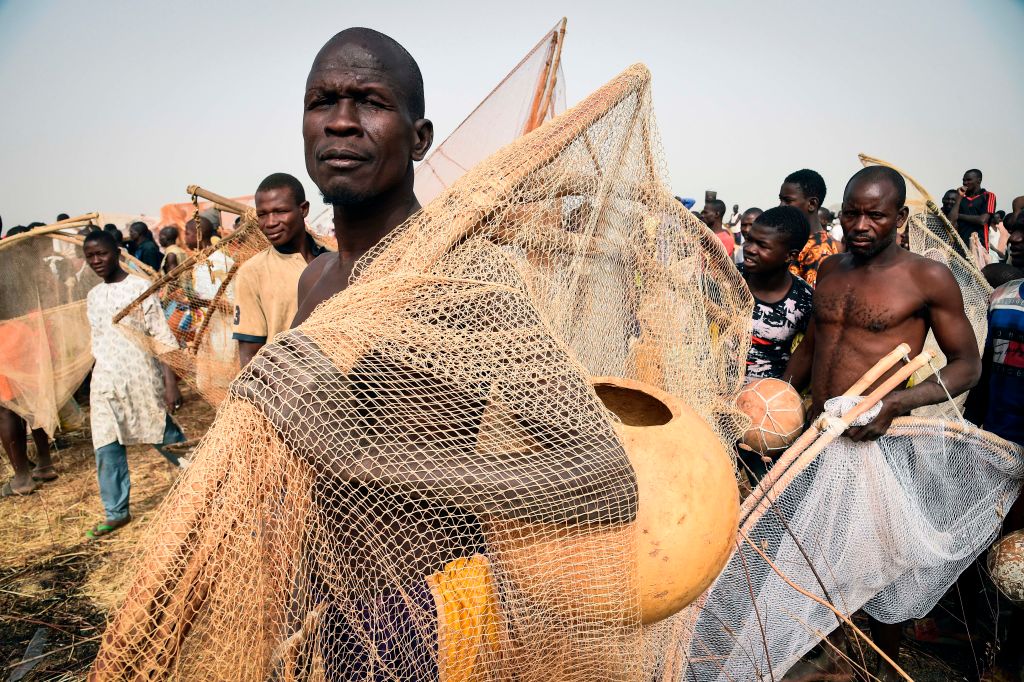ADF STAFF
Illegal, unreported and unregulated (IUU) fishing has overtaken piracy as the primary maritime security threat in African waters. The last year saw unscrupulous industrial trawlers continue using an array of tactics to catch far more fish than allowed, seriously depleting fish stocks.
IUU fishing often leads to other crimes, such as drug and weapons smuggling, human trafficking and piracy. The World Trade Organization (WTO) hopes to limit IUU fishing in 2022 when it aims to end harmful fuel subsidies countries pay to finance their distant-water fishing fleets.
It may not be easy. WTO negotiations have been ongoing for 20 years, and China and India have opposed an end to the subsidies.
Daniel Voces de Onaíndi, managing director of European fisheries representative body Europêche, told Seafood Source that he believes it will be “really difficult” for the WTO to reach an agreement on fishing subsidies before the end of February. A consensus was expected at a conference in late 2021, but the event was postponed due to COVID-19.
“Many fundamental questions remain open such as fuel subsidies, [IUU] fishing determination, and the flexibilities granted to developing countries,” Voces told SeafoodSource.
Isabel Jarrett, who manages a campaign to reduce harmful fisheries subsidies at Pew Charitable Trusts, questioned whether there was enough “political will” for the WTO to reach a consensus on subsidies and other IUU fishing issues.
“Support offsetting the cost of fuel must remain on the list of prohibited subsidies,” Jarrett told Mongabay, a nonprofit environmental science and conservation news platform. “Without harmful subsidies, 54% of fishing on the high seas and in other countries’ waters would be unprofitable.”
Commanding the world’s largest distant-water fishing fleet, China is also the world’s worst IUU offender, according to IUU Fishing Index.
China’s ability to have a global reach in fishing is due in large part to the government subsidies. No other nation spends more on fishing subsidies than does China, which paid $7.2 billion — about 21% of the global total — in 2018, according to a report by ScienceDirect.com.
China has targeted West African waters for decades — with devastating effects.
IUU fishing costs The Gambia, Guinea, Guinea-Bissau, Mauritania, Senegal and Sierra Leone $2.3 billion a year. The Food and Agriculture Organization of the United Nations estimated that over 300,000 jobs have been lost to illegal fishing in the region.
In Ghana, small pelagic fish populations such as sardinella have dropped 80% in the past two decades, due to overfishing. One species, sardinella aurita, already is fully collapsed. Without governmental intervention, full collapse of Ghana’s fisheries is likely in less than 10 years, according to Max Schmid, chief operating officer of the Environmental Justice Foundation.
Ghana’s marine fisheries support the livelihoods of more than 2.7 million people — almost 10% of the population. More than 100,000 fishermen and 11,000 canoes operate in the country, but due to overfishing and IUU tactics, average annual income has dropped up to 40% per artisanal canoe in the past 15 years, according to the foundation.
Wisdom Akpalu, director of the Ghana-based Environment for Development Initiative, said in press materials from Pew Charitable Trusts that if the WTO can reach a meaningful deal, “depleted fish populations could rebound, boosting coastal communities and stemming international migration across the [African] continent.”
Akpalu referred to the consequence of people migrating when their livelihoods are seriously threatened.


1 Comment
In Kenya’s Indian Ocean trawling by China is rampant and causing immense marine degradation including massive turtle mortality in Kilifi county. Serious interventions needed here or else alot of marine species will become extinct soon.